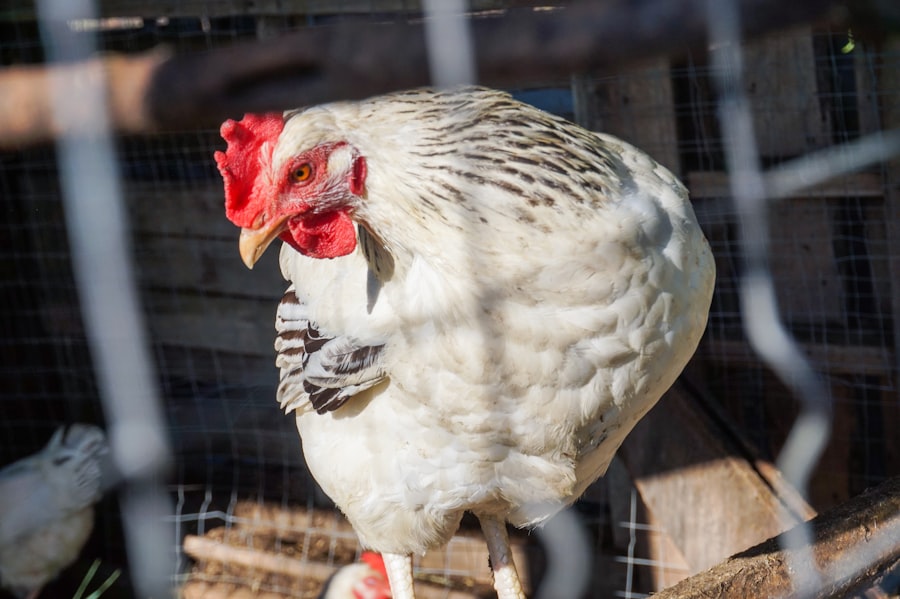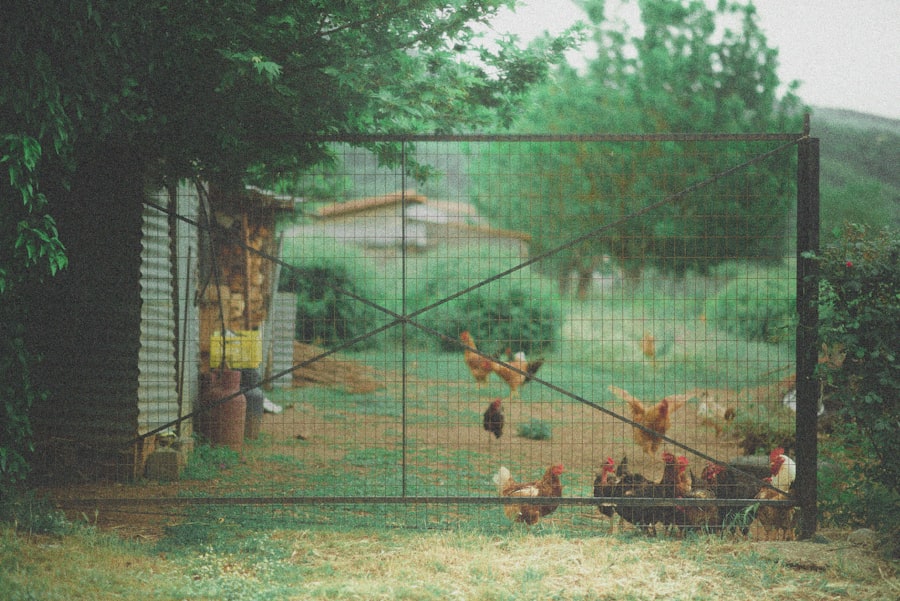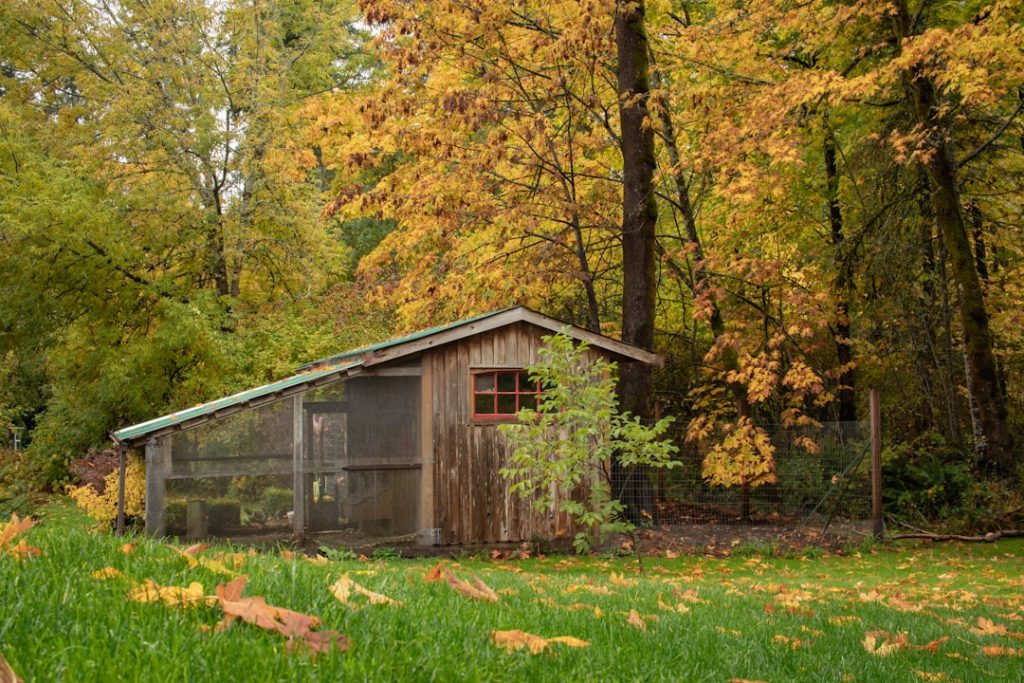Chicken keeping in the United Kingdom requires careful financial planning. Prospective owners must consider various expenses, including initial setup costs, ongoing maintenance, and potential unforeseen expenditures. These financial aspects encompass purchasing or constructing a coop, acquiring feed and bedding, providing veterinary care, and ensuring proper sanitation.
Additionally, there may be costs associated with permits or compliance with local regulations. By thoroughly researching and budgeting for these expenses, individuals can make informed decisions about chicken ownership and ensure they are prepared for the financial commitment involved in maintaining a healthy and happy flock. Understanding the full scope of costs associated with keeping chickens in the UK is essential for successful and responsible poultry management.
Table of Contents
- 1 Initial Setup Expenses for Keeping Chickens
- 1.1 The initial setup expenses for keeping chickens in the UK can vary depending on the size of the flock and the quality of the equipment purchased. Some of the essential items needed for setting up a chicken coop and run include a suitable coop, nesting boxes, feeders, waterers, and fencing. Additionally, bedding material, such as straw or wood shavings, will be required to keep the coop clean and comfortable for the chickens.
- 1.2 Predator-Proofing Measures
- 1.3 Creating a Safe Environment
- 2 Ongoing Costs of Chicken Care
- 3 Calculating Feed Costs for Chickens
- 4 Veterinary and Healthcare Expenses for Chickens
- 5 Additional Expenses for Chicken Coops and Runs
- 5.1 Maintaining a Chicken Coop and Run in the UK: Additional Expenses to Consider
In addition to the initial setup costs, ongoing expenses, and healthcare costs, there are other expenses associated with maintaining chicken coops and runs in the UK. These expenses may include purchasing replacement equipment or materials, making repairs or upgrades to existing structures, and investing in amenities to improve the chickens’ living environment.
- 5.2 Investing in Amenities
- 5.3 Proactive Maintenance and Budgeting
- 5.1 Maintaining a Chicken Coop and Run in the UK: Additional Expenses to Consider
- 6 Budgeting for Unexpected Costs in Chicken Keeping
- 7 FAQs
- 7.1 What are the costs associated with keeping chickens in the UK?
- 7.2 How much does it cost to purchase chickens in the UK?
- 7.3 What are the expenses for building or buying a coop for chickens in the UK?
- 7.4 How much does chicken feed and bedding cost in the UK?
- 7.5 What are the healthcare and veterinary expenses for keeping chickens in the UK?
- 7.6 What are the ongoing maintenance costs for keeping chickens in the UK?
Key Takeaways
- Keeping chickens in the UK can be costly, but with proper budgeting, it can be manageable.
- Initial setup expenses for keeping chickens include purchasing a coop, feeders, waterers, and heat lamps.
- Ongoing costs of chicken care include feed, bedding, and supplements.
- Calculating feed costs for chickens depends on the number of chickens, their age, and the type of feed.
- Veterinary and healthcare expenses for chickens may include vaccinations, deworming, and treatment for common illnesses.
- Additional expenses for chicken coops and runs may include predator-proofing, fencing, and insulation.
- Budgeting for unexpected costs in chicken keeping is important to cover emergencies such as injuries or illnesses.
Initial Setup Expenses for Keeping Chickens
The initial setup expenses for keeping chickens in the UK can vary depending on the size of the flock and the quality of the equipment purchased. Some of the essential items needed for setting up a chicken coop and run include a suitable coop, nesting boxes, feeders, waterers, and fencing. Additionally, bedding material, such as straw or wood shavings, will be required to keep the coop clean and comfortable for the chickens.
Initial Setup Costs
The cost of these initial setup expenses can range from a few hundred pounds for a basic setup to over a thousand pounds for a larger, more elaborate setup. It’s important to invest in high-quality equipment that will provide a safe and comfortable environment for the chickens, as this can help prevent costly issues down the line.
Predator-Proofing Measures
When setting up a chicken coop and run, it’s also important to consider the cost of predator-proofing the area. This may involve installing secure fencing, adding locks to coop doors, and using predator-proof materials for construction. Investing in predator-proofing measures can help protect the chickens from potential harm and reduce the risk of financial losses due to predator attacks.
Creating a Safe Environment
Overall, the initial setup expenses for keeping chickens in the UK can be significant, but they are essential for creating a safe and comfortable environment for the birds.
Ongoing Costs of Chicken Care

In addition to the initial setup expenses, there are ongoing costs associated with caring for chickens in the UK. These ongoing costs include purchasing feed, bedding, and other supplies, as well as covering regular maintenance and cleaning expenses. The cost of feed can be a significant ongoing expense, especially for larger flocks or during periods of increased egg production.
Additionally, bedding material will need to be replaced regularly to maintain a clean and hygienic living environment for the chickens. Regular maintenance and cleaning expenses may include purchasing cleaning supplies, replacing worn or damaged equipment, and making necessary repairs to the coop and run. It’s important to budget for these ongoing costs to ensure that the chickens receive proper care and that their living environment remains safe and comfortable.
By factoring in these ongoing expenses, prospective chicken owners can better understand the financial commitment involved in keeping chickens in the UK.
Calculating Feed Costs for Chickens
One of the most significant ongoing expenses for keeping chickens in the UK is the cost of feed. The amount of feed required will depend on factors such as the size of the flock, the breed of chickens, and their age and activity level. Chickens require a balanced diet that includes a mix of grains, protein, vitamins, and minerals to support their health and egg production.
The cost of feed can vary depending on the quality and type of feed purchased, as well as fluctuations in market prices. To calculate feed costs for chickens, it’s important to consider the daily feed requirements for the flock and multiply this by the cost per unit of feed. Additionally, it’s important to factor in any seasonal variations in feed consumption, such as increased appetites during colder months or when hens are laying eggs.
By accurately calculating feed costs, chicken owners can budget effectively and ensure that their birds receive proper nutrition without overspending on feed. In addition to purchasing commercial feed, some chicken owners may choose to supplement their flock’s diet with kitchen scraps or homegrown produce. While this can help reduce feed costs to some extent, it’s important to ensure that chickens receive a balanced diet and that any supplemental foods are safe and appropriate for their consumption.
By carefully managing feed costs and exploring cost-effective feeding options, chicken owners can help minimize ongoing expenses while still providing their birds with nutritious meals.
Veterinary and Healthcare Expenses for Chickens
Another important aspect of the cost of keeping chickens in the UK is veterinary and healthcare expenses. While chickens are generally hardy animals, they can still be susceptible to various health issues and diseases that may require veterinary attention. Additionally, routine healthcare expenses such as vaccinations, deworming, and parasite control should be factored into the overall cost of chicken care.
The cost of veterinary care for chickens can vary depending on factors such as the type of treatment needed, the expertise of the veterinarian, and any medications or procedures required. It’s important for chicken owners to have a plan in place for addressing potential health issues and to budget for veterinary expenses accordingly. By staying proactive about their flock’s health and seeking prompt veterinary care when needed, chicken owners can help minimize healthcare expenses and ensure that their birds receive proper medical attention.
In addition to veterinary care, it’s important to budget for routine healthcare expenses such as vaccinations and parasite control. These preventative measures can help protect chickens from common diseases and parasites, reducing the risk of illness and potential veterinary costs down the line. By factoring in veterinary and healthcare expenses when budgeting for chicken care, prospective chicken owners can better prepare for potential medical needs and ensure that their birds receive proper healthcare.
Additional Expenses for Chicken Coops and Runs

Maintaining a Chicken Coop and Run in the UK: Additional Expenses to Consider
In addition to the initial setup costs, ongoing expenses, and healthcare costs, there are other expenses associated with maintaining chicken coops and runs in the UK. These expenses may include purchasing replacement equipment or materials, making repairs or upgrades to existing structures, and investing in amenities to improve the chickens’ living environment.
Replacement and Repair Costs
Chicken owners may need to replace worn-out nesting boxes or feeders, repair damaged fencing or roofing, or add insulation or ventilation to improve coop conditions. These expenses can add up over time, but are essential to maintaining a safe and healthy environment for the chickens.
Investing in Amenities
Investing in amenities such as perches, dust baths, or enrichment toys can also contribute to additional expenses for chicken coops and runs. While these amenities are not essential for basic chicken care, they can help improve the chickens’ quality of life and provide mental stimulation and physical exercise.
Proactive Maintenance and Budgeting
It’s important to regularly assess the condition of chicken coops and runs and address any maintenance or repair needs promptly to prevent more costly issues from arising later on. By staying proactive about coop maintenance and investing in improvements as needed, chicken owners can help ensure that their birds have a safe and comfortable living environment while managing additional expenses effectively.
Budgeting for Unexpected Costs in Chicken Keeping
Finally, it’s important for prospective chicken owners in the UK to budget for unexpected costs that may arise during their chicken-keeping journey. Unexpected costs could include emergency veterinary care, repairs due to storm damage or predator attacks, or unforeseen expenses related to changes in flock size or needs. By setting aside funds for unexpected costs or establishing an emergency fund specifically for chicken care, owners can better prepare for unforeseen financial challenges without compromising their birds’ well-being.
In addition to budgeting for unexpected costs, it’s important for chicken owners to stay informed about potential risks and challenges associated with keeping chickens in the UK. This may include researching common health issues or predators in their area, staying updated on local regulations or zoning laws related to chicken keeping, and seeking advice from experienced chicken owners or poultry experts. By staying proactive and informed about potential risks, owners can better anticipate potential unexpected costs and take steps to mitigate them effectively.
In conclusion, keeping chickens in the UK involves various financial considerations that prospective chicken owners should be aware of when planning their flock. From initial setup expenses to ongoing care costs, veterinary expenses, additional coop maintenance needs, and unexpected costs, understanding the full scope of financial commitments involved in chicken keeping is essential for making informed decisions and budgeting effectively. By carefully considering these financial aspects and planning ahead for potential expenses, chicken owners can provide their birds with proper care while managing their finances responsibly.
If you’re considering keeping chickens in the UK, you may also be interested in learning about whether guinea fowl can live with chickens. Poultry Wizard has an informative article on this topic, discussing the compatibility of guinea fowl and chickens in a shared living environment. Check out their article here for more information.
FAQs
What are the costs associated with keeping chickens in the UK?
The costs associated with keeping chickens in the UK include purchasing the chickens, building or buying a coop, feed and bedding, healthcare and veterinary expenses, and ongoing maintenance costs.
How much does it cost to purchase chickens in the UK?
The cost of purchasing chickens in the UK can vary depending on the breed and age of the chickens. On average, the cost can range from £5 to £20 per chicken.
What are the expenses for building or buying a coop for chickens in the UK?
The expenses for building or buying a coop for chickens in the UK can range from £200 to £500, depending on the size and quality of the coop.
How much does chicken feed and bedding cost in the UK?
The cost of chicken feed and bedding in the UK can vary depending on the quality and quantity purchased. On average, the monthly cost can range from £10 to £20 per chicken.
What are the healthcare and veterinary expenses for keeping chickens in the UK?
The healthcare and veterinary expenses for keeping chickens in the UK can include vaccinations, deworming, and potential medical treatments. The cost can vary, but it’s important to budget for these expenses.
What are the ongoing maintenance costs for keeping chickens in the UK?
The ongoing maintenance costs for keeping chickens in the UK can include cleaning supplies, coop repairs, and other miscellaneous expenses. It’s important to budget for these costs to ensure the well-being of the chickens.

Meet Walter, the feathered-friend fanatic of Florida! Nestled in the sunshine state, Walter struts through life with his feathered companions, clucking his way to happiness. With a coop that’s fancier than a five-star hotel, he’s the Don Juan of the chicken world. When he’s not teaching his hens to do the cha-cha, you’ll find him in a heated debate with his prized rooster, Sir Clucks-a-Lot. Walter’s poultry passion is no yolk; he’s the sunny-side-up guy you never knew you needed in your flock of friends!


In addition to the initial setup costs, ongoing expenses, and healthcare costs, there are other expenses associated with maintaining chicken coops and runs in the UK. These expenses may include purchasing replacement equipment or materials, making repairs or upgrades to existing structures, and investing in amenities to improve the chickens’ living environment.
Replacement and Repair Costs
Chicken owners may need to replace worn-out nesting boxes or feeders, repair damaged fencing or roofing, or add insulation or ventilation to improve coop conditions. These expenses can add up over time, but are essential to maintaining a safe and healthy environment for the chickens.
Investing in Amenities
Investing in amenities such as perches, dust baths, or enrichment toys can also contribute to additional expenses for chicken coops and runs. While these amenities are not essential for basic chicken care, they can help improve the chickens’ quality of life and provide mental stimulation and physical exercise.
Proactive Maintenance and Budgeting
It’s important to regularly assess the condition of chicken coops and runs and address any maintenance or repair needs promptly to prevent more costly issues from arising later on. By staying proactive about coop maintenance and investing in improvements as needed, chicken owners can help ensure that their birds have a safe and comfortable living environment while managing additional expenses effectively.
Budgeting for Unexpected Costs in Chicken Keeping
Finally, it’s important for prospective chicken owners in the UK to budget for unexpected costs that may arise during their chicken-keeping journey. Unexpected costs could include emergency veterinary care, repairs due to storm damage or predator attacks, or unforeseen expenses related to changes in flock size or needs. By setting aside funds for unexpected costs or establishing an emergency fund specifically for chicken care, owners can better prepare for unforeseen financial challenges without compromising their birds’ well-being.
In addition to budgeting for unexpected costs, it’s important for chicken owners to stay informed about potential risks and challenges associated with keeping chickens in the UK. This may include researching common health issues or predators in their area, staying updated on local regulations or zoning laws related to chicken keeping, and seeking advice from experienced chicken owners or poultry experts. By staying proactive and informed about potential risks, owners can better anticipate potential unexpected costs and take steps to mitigate them effectively.
In conclusion, keeping chickens in the UK involves various financial considerations that prospective chicken owners should be aware of when planning their flock. From initial setup expenses to ongoing care costs, veterinary expenses, additional coop maintenance needs, and unexpected costs, understanding the full scope of financial commitments involved in chicken keeping is essential for making informed decisions and budgeting effectively. By carefully considering these financial aspects and planning ahead for potential expenses, chicken owners can provide their birds with proper care while managing their finances responsibly.
If you’re considering keeping chickens in the UK, you may also be interested in learning about whether guinea fowl can live with chickens. Poultry Wizard has an informative article on this topic, discussing the compatibility of guinea fowl and chickens in a shared living environment. Check out their article here for more information.
FAQs
What are the costs associated with keeping chickens in the UK?
The costs associated with keeping chickens in the UK include purchasing the chickens, building or buying a coop, feed and bedding, healthcare and veterinary expenses, and ongoing maintenance costs.
How much does it cost to purchase chickens in the UK?
The cost of purchasing chickens in the UK can vary depending on the breed and age of the chickens. On average, the cost can range from £5 to £20 per chicken.
What are the expenses for building or buying a coop for chickens in the UK?
The expenses for building or buying a coop for chickens in the UK can range from £200 to £500, depending on the size and quality of the coop.
How much does chicken feed and bedding cost in the UK?
The cost of chicken feed and bedding in the UK can vary depending on the quality and quantity purchased. On average, the monthly cost can range from £10 to £20 per chicken.
What are the healthcare and veterinary expenses for keeping chickens in the UK?
The healthcare and veterinary expenses for keeping chickens in the UK can include vaccinations, deworming, and potential medical treatments. The cost can vary, but it’s important to budget for these expenses.
What are the ongoing maintenance costs for keeping chickens in the UK?
The ongoing maintenance costs for keeping chickens in the UK can include cleaning supplies, coop repairs, and other miscellaneous expenses. It’s important to budget for these costs to ensure the well-being of the chickens.
Meet Walter, the feathered-friend fanatic of Florida! Nestled in the sunshine state, Walter struts through life with his feathered companions, clucking his way to happiness. With a coop that’s fancier than a five-star hotel, he’s the Don Juan of the chicken world. When he’s not teaching his hens to do the cha-cha, you’ll find him in a heated debate with his prized rooster, Sir Clucks-a-Lot. Walter’s poultry passion is no yolk; he’s the sunny-side-up guy you never knew you needed in your flock of friends!







